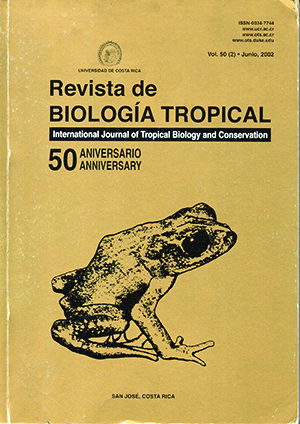Abstract
The Organization for Tropical Studies (OTS)/Organización para Estudios Tropicales (OET) has evolved in many ways since its founding in 1963 as a non-profit consortium offering graduate courses and facilitating research in tropical ecology in Costa Rica. By 2002, its international membership included about 65 institutions, including four from Costa Rica. It had developed three Costa Rican field stations (La Selva, Las Cruces, and Palo Verde) with excellent facilities for teaching and research, and it was constructing a new Costa Rican office at the University of Costa Rica. Combinations of internal and external pressures influenced OTS to develop in new directions in the 1980s and 1990s. It became more diversified and more concerned with applied science in its traditional areas of graduate education and research facilitation. The Organization also evolved into new niches: more applied biology, professional education, environmental education and policy, conservation efforts, and an expanded geographic distribution to other Latin American countries. OTS was composed of changing combinations of people (Boards, members, staff) with evolving and competing priorities for limited financial resources. External environmental changes also shaped OTS’s evolution. New problems of increased tropical deforestation, the emergence of the biodiversity “crisis” and conservation biology, global climate change, and calls for sustainable development affected OTS constituents and funding priorities of governments and foundations. Both internal and external pressures have in some cases demanded for OTS to improve its relationship with: Costa Rican biologists and their institutions, the Costa Rican government, and Costa Ricans living around the three OTS field stations.##plugins.facebook.comentarios##

This work is licensed under a Creative Commons Attribution 4.0 International License.
Copyright (c) 2002 Revista de Biología Tropical
Downloads
Download data is not yet available.


